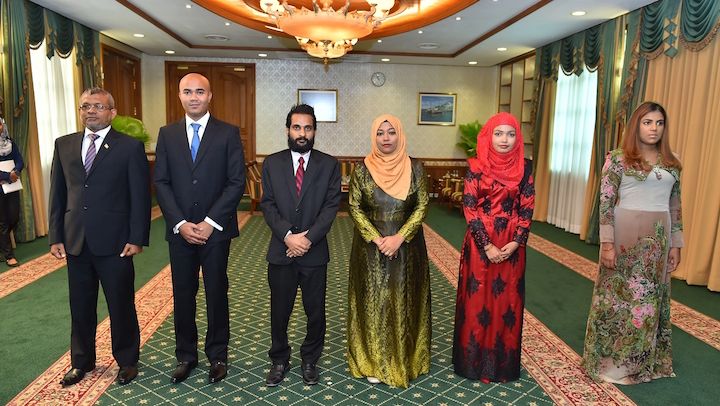Media regulator throws out libel complaint against state TV
MBC said it would not investigate TVM for defaming Nasheed and Gayoom in a decision that stands in start contrast to action it has previously taken against opposition aligned station, Raajje TV.

10 Dec 2016, 09:00
The broadcast regulator has thrown out a libel complaint against the state TV in a decision that stands in stark contrast to action it has taken against opposition-aligned outlets for defaming President Abdulla Yameen.
The Maldives Broadcasting Commission, when asked to investigate Public Service Media for questioning former Presidents Maumoon Abdul Gayoom and Mohamed Nasheed’s Islamic faith, dismissed the petition saying the pair had shown no interest in pursuing the matter.
“Since the former presidents have not submitted a complaint over defamation, the members of the commission agreed that the commission will not take the initiative to investigate,” the MBC said Wednesday.
The anonymous complaint was the first filed at the MBC under a new law criminalising defamation.
Become a member
Get full access to our archive and personalise your experience.
Already a member?
Discussion
No comments yet. Be the first to share your thoughts!
No comments yet. Be the first to join the conversation!
Join the Conversation
Sign in to share your thoughts under an alias and take part in the discussion. Independent journalism thrives on open, respectful debate — your voice matters.




